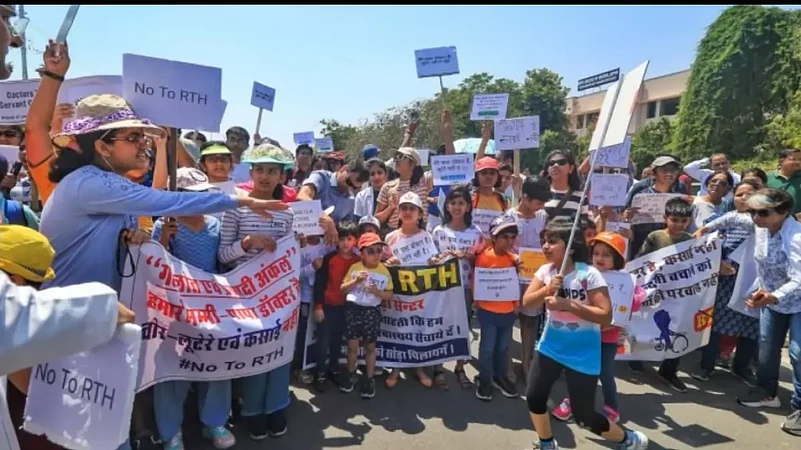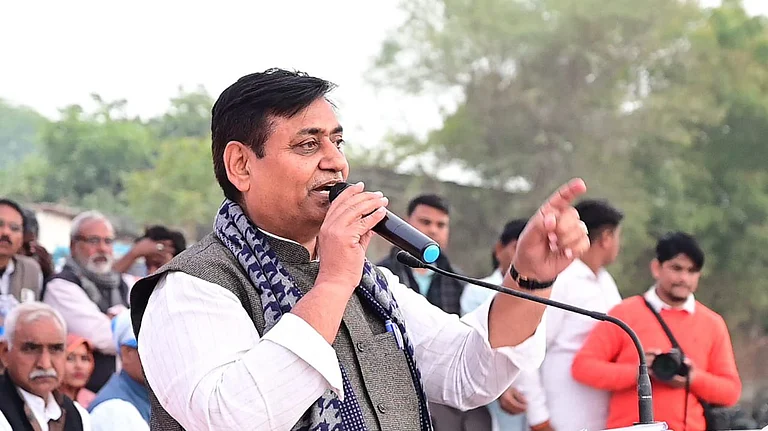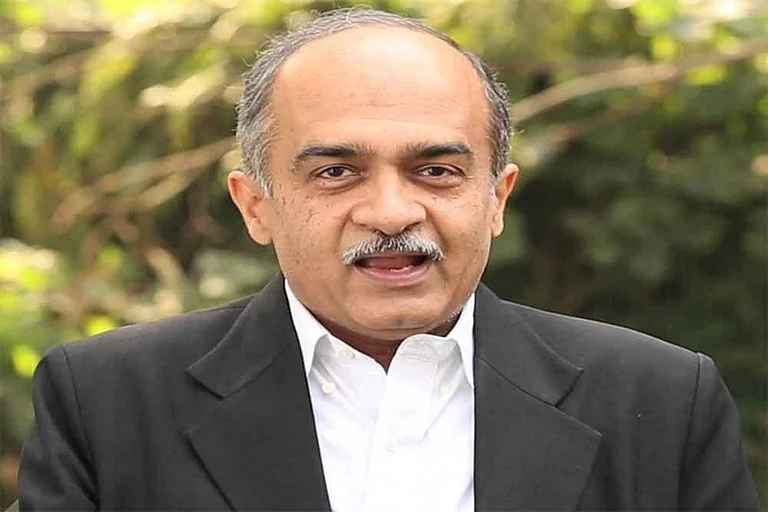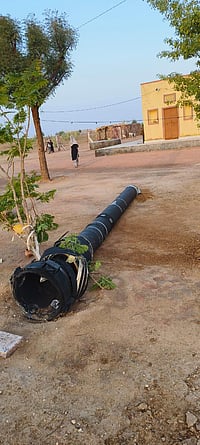After several rounds of discussions, the deadlock between the doctors and the government broke on Tuesday. An eight-point memorandum of understanding (MoU) was inked between the state government and the doctors' associations, who have been at the forefront of the protest such as the Indian Medical Association (IMA), the Private Hospitals and Nursing Homes Society (PHNHS), and the United Private Clinics and Hospitals of Rajasthan (UPCHAR). Also T Ravi Kanth, Principal Secretary, Medical and Health Education, Rajasthan was the representative signed on behalf of the government.
Protest called off
As per the agreement, the health minister has agreed to exclude less than 50 bedded private multi-speciality hospitals from RTH Act and mentions that all private hospitals which are established without any support from the government in the form of land or building shall also be excluded from the RTH Act --- the major demands raised by thousands of doctors in Rajasthan --- who were protesting against the Right to Health Bill, hitting healthcare services across the state.
While the private hospitals remained partially closed, the government doctors too chose to wear black ribbons on their arms in solidarity with the private sector. The IMA, the country’s largest physician association also supported the agitation.
The agreement also assures that police cases registered against the doctors during the protest shall be withdrawn.
On Tuesday, Rajasthan Chief Minister Ashok Gehlot tweeted that the state government and the protesting doctors have reached a consensus on the Right To Health Bill.
“I am happy that a consensus had been made between the government and the doctors on the Right to Health. Rajasthan becomes the first state in the country to implement the Right to Health.”
Welcoming the move, Dr Sunil Chugh, Rajasthan IMA president told Outlook, "We shall soon call off the protest after holding talks with the protesting doctors. We are satisfied after signing an agreement with the government. Now the bill has clarity on which hospitals come under RTH. The bill was vague and failed to clarify the reimbursement status and measures for the private hospitals".
The MoU further assures that the regularisation of hospitals constructed at various places in Rajasthan will be done on the Kota model. Moreover, under the RTH Act, hospitals which will be covered include private medical college hospitals, hospitals established in PPP mode, hospitals run by trust and hospitals established after taking land from the government or taking land on subsidised rates.
Dr Amit Yadav, former president of the Jaipur Association of Resident Doctors, who has been leading the protest in Jaipur told Outlook, "The biggest problem with the bill was that it failed to define what it means by an emergency is, even after it says that hospitals have to provide emergency service. Also, it failed to assure the process of reimbursement for private hospitals from the government. Now after signing a mutual agreement there is some clarity on the issues we were protesting for".
About the RTH
The Right to Health Bill passed by the Rajasthan assembly gives every resident of the state “the right to a free consultation, drugs, diagnostics and emergency care at all public hospitals”. Moreover, a patient can get emergency treatment without having to pay anything upfront at a private facility. If the patient leaves without paying, the government will bear the costs.
The bill empowers the residents to collect information to make themselves healthy. The Act guarantees to extend free healthcare mandatorily, it also mentions that if anyone is found violating the Act, he/she/ hospital will be punishable with a fine of up to Rs 10,000 for the first contravention, and up to Rs 25,000 for subsequent contraventions.
The Bill’s provisions are consistent with several Supreme Court verdicts that have affirmed that the Right to Health is a key part of the Right to Life under Article 21 of the Constitution.
The journey of RTH
In 2018, ahead of the assembly polls in Rajasthan, Congress in its manifesto had promised the Right to Health Act to improve the health of an individual. On September 2022 the government introduced the Rajasthan Right to Health Bill. But the bill was criticised by doctors and activists, and after this, it was sent to a Select Committee of legislators to seek amendments. The health minister of Rajasthan, Prasadi Lal Meena headed a 16-member committee that added inputs to the bill.
On March 21, 2023, the amended Bill, approved by the select committee, was tabled again and passed by the assembly. However, the very next day, the doctors' associations started a nationwide protest and claimed that bill had ignored the amendments that private healthcare stakeholders and doctors had suggested. Most private hospitals in Rajasthan had shut down their services.
The Rajasthan State Human Rights Commission has sent notices (under Rajasthan Medical Act 1952 and Rajasthan Medical Rules 1957 Act) to the Principal Secretary (Medical and Health) and Registrar (Rajasthan Medical Council) and sought a reply on what action is being taken against the striking doctors in the state.
"The citizens in India enjoy the right to food, education, employment, and information, but there is no right to health. The enactment of the right to health is an attempt by the government to enhance access to quality healthcare without any catastrophic expenditure by families," Chhaya Pachauli, health rights activist at Jan Swasthya Abhiyan told Outlook.
"While the Act covers patients who were admitted to private facilities and failed to make the required payments post-stabilisation, it also gives patients the right to have access to their records and itemised bills and to know the name, professional status, etc., of the health care provider", added Chhaya of Jan Swasthya Abhiyan Rajasthan, which had a major contribution in pushing in this Act.
The opposition BJP too had criticised the Congress government and accused it of changing the names of existing schemes. "The BJP brought the Bhamasha scheme and Congress changed it to the Chiranjeevi scheme and now are claiming to ensure citizens under RTH. This is just an eyewash," BJP MLA and chief spokesperson Ramlal Sharma said.









.jpg?auto=format%2Ccompress&fit=max&format=webp&w=768&dpr=1.0)

















